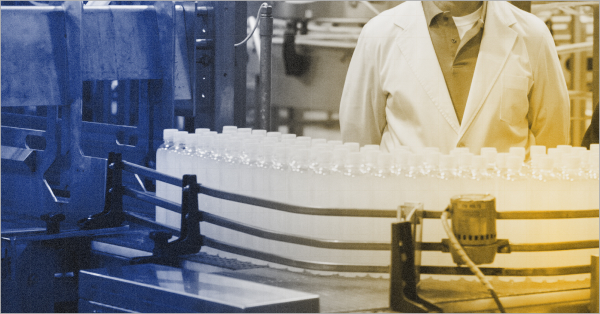Consumer protection has always been a crucial aspect of a well-functioning economy. In India, the need for stronger consumer rights and stricter liability laws led to the enactment of the Consumer Protection Act, 2019. This landmark legislation replaced the Indian Consumer Protection Act of 1986 and introduced more stringent measures to safeguard consumer interests in the digital era.
With the rise in product manufacturing, e-commerce, and digital transactions, businesses face heightened responsibilities concerning the safety and quality of their products. One major concern under this framework is product liability, which holds manufacturers, sellers, and service providers accountable for any harm caused by defective or unsafe products. To mitigate these risks, businesses increasingly rely on Product Liability Insurance to protect themselves from potential legal and financial liabilities. In this blog, we will explore the key provisions of the Consumer Protection Act, 2019 and analyse its impact on businesses. We will also look into how Product Liability Insurance plays a critical role in shielding businesses from legal disputes and financial losses.
Understanding the Consumer Protection Act, 2019
Key Objectives of the Indian Consumer Protection Act, 2019
The primary objectives of the Consumer Protection Act, 2019 are:
- Strengthening consumer rights by providing faster and more effective dispute resolution mechanisms.
- Introducing product liability provisions to hold manufacturers, sellers, and service providers accountable for defective goods or services.
- Addressing misleading advertisements and imposing penalties on false claims.
- Regulating e-commerce platforms and ensuring fair trade practices in digital transactions.
- Introducing the Central Consumer Protection Authority (CCPA) to oversee compliance and enforce penalties.
Key Provisions of the Indian Consumer Protection Act, 2019
1. Product Liability
The Act defines product liability and establishes the grounds under which a product manufacturer, seller, or service provider can be held responsible for damages arising from defective goods or deficient services. A consumer can seek compensation if:
- A product is found to be defective.
- The manufacturer has failed to provide adequate warnings or instructions.
- The seller has knowingly sold a defective product.
- A service provider has acted negligently, resulting in harm to the consumer.
The Act also holds product service providers and sellers accountable under Sections 85 and 86, respectively, ensuring comprehensive protection for consumers against defective products and negligent services.
2. Central Consumer Protection Authority (CCPA)
The Consumer Protection Act, 2019 establishes the CCPA, a regulatory body with investigative and enforcement powers. The CCPA can:
- Take suo motu actions against any product manufacturer or business that violates consumer rights.
- Impose penalties for misleading advertisements.
- Order product recalls and refunds.
The CCPA has wide-reaching powers to take actions against any violations that harm consumers, enhancing the protection framework significantly.
3. Consumer Redressal Mechanism
The dispute resolution process has been enhanced under the Consumer Protection Act, 2019:
- Consumers can now file complaints electronically and at their place of residence, making the process more accessible and efficient.
- The jurisdictional monetary limits for District, State, and National Consumer Disputes Redressal Commissions have been revised, allowing faster disposal of cases.
- Mediation cells have been introduced as per the provisions of the Consumer Protection Act, 2019, to promote alternative dispute resolution mechanisms.
4. E-Commerce Regulations
With the exponential growth of online shopping, the Consumer Protection Act, 2019 now covers e-commerce entities and marketplaces. E-commerce platforms must:
- Ensure transparency in product listings.
- Provide clear refund and return policies.
- Prohibit unfair trade practices such as fake reviews.
- Appoint a grievance officer and address consumer complaints within a specified time frame.
This extension to e-commerce platforms ensures that online businesses are held to the same standards as traditional businesses when it comes to consumer rights.
How the Indian Consumer Protection Act, 2019 Affects Businesses
- Increased Liability for Defective Products: Manufacturers and sellers are now directly accountable for any harm caused by their products. This increases their responsibility for quality control, testing, and labeling.
- Stricter Advertising Regulations: False claims and misleading advertisements can attract heavy penalties. Celebrities endorsing products may also be held liable for misleading consumers.
- Stronger Compliance Requirements for E-Commerce: E-commerce companies must follow stringent data protection, grievance redressal, and transparency norms to avoid legal repercussions.
The Role of Product Liability Insurance
Given the stringent laws under the Consumer Protection Act, 2019, businesses are at an increased risk of legal claims related to product defects. This is where Product Liability Insurance becomes an essential risk management tool.
A. What is Product Liability Insurance?
Product Liability Insurance is a type of insurance that provides financial protection to manufacturers, wholesalers, distributors, and retailers against claims arising from defects or malfunctions in their products. If a product causes bodily injury, property damage, or financial losses to consumers due to manufacturing defects, design flaws, or inadequate warnings, the insured company may be held legally responsible. This liability insurance policy helps cover legal expenses, compensation payouts, and settlement costs, safeguarding businesses from significant financial liabilities.
This type of insurance is particularly crucial for companies in sectors like pharmaceuticals, food processing, electronics, and consumer goods, where product safety is a major concern. Given the increasing consumer awareness and stringent regulatory environment, having Product Liability Insurance ensures compliance with legal requirements while protecting a company’s reputation and financial stability.
B. Key Coverages in a Product Liability Insurance Policy
- Compensation for Injury or Damage: Covers legal liabilities arising from injuries or property damage caused by defective products.
- Legal Expenses: This liability insurance policy compensates for the defense costs incurred during lawsuits.
- Product Recall Coverage: Covers the cost of recalling a defective product from the market.
- Manufacturing and Design Defects: Product Liability Insurance protects against claims related to flaws in manufacturing or product design.
- Marketing Defects: Covers liabilities arising from improper labeling, misleading/insufficient safety warnings or instructions.
Some policies may also offer worldwide coverage and include specific protections for third-party liabilities.
Benefits of a Product Liability Insurance Policy for Businesses
With consumer awareness rising and legal frameworks becoming stricter, businesses must adopt proactive risk management strategies. Some industries, such as pharmaceuticals, food & beverages, automobiles, and electronics, are particularly vulnerable to product liability claims. Without an adequate Product Liability Insurance Policy, a single lawsuit could lead to significant financial setbacks. Certain compelling reasons why a business or product manufacturer needs this insurance include:
- Financial Protection: Prevents businesses from facing financial ruin due to hefty compensation claims.
- Brand Reputation Management: Ensures that companies can handle claims efficiently without tarnishing their market image.
- Business Continuity: Protects business operations from disruptions caused by product-related lawsuits.
- Compliance with Legal Requirements: Helps businesses meet regulatory obligations under the Consumer Protection Act, 2019.
Final Thoughts:
The Consumer Protection Act, 2019 has reshaped the landscape of consumer rights and business responsibilities in India. With stricter product liability provisions, a business or product manufacturer must take proactive steps to ensure compliance, maintain quality standards, and gain protection from legal claims.
One of the most effective ways to mitigate these risks is by investing in Product Liability Insurance. By securing comprehensive coverage, businesses can not only safeguard their financial stability but also build long-term consumer trust and brand credibility. With an evolving regulatory landscape, businesses that prioritize consumer safety and legal preparedness will stay ahead of the curve and thrive in India’s competitive market.
Disclaimer: This article is for informational purposes only. For precise legal advice, please consult a professional.








